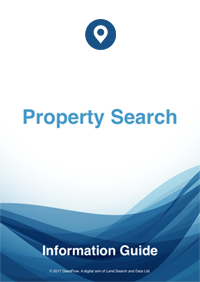How to Provide Proof of Property Ownership
Contents
Overview
A common question queried to us is: "What suffices as proof of house ownership in England?" This article answers the question in simplistic terms.
The Title Register is Official Evidence of Ownership
One of the easiest and most reliable ways to prove that you own a specified property is to provide a copy of the Title Register. Such proof can even be provided for previous ownerships.
In Section B of the Title Register the name and contact details of the owner are provided. The owner is described as the Registered Proprietor. Registration in a person’s name is absolute proof of ownership and an official copy of the Title Register in digital format is acceptable evidence of this.
Proof of Previous Ownerships
Older copies of the Title Register are available for persons needing to prove their ownership at a previous time. To do so you will need to obtain a Prior Copy of the Title Register. This is available back to 1993 so long as the property was registered on the date you select.
Proof that you have Sold the Property
Sometimes it is necessary to show an official organisation that you no longer own a property. This is done by obtaining a copy of the current Title Register. It will show the current owner’s name and contact address in the B section thereof.
Who Needs Proof of Ownership (or Non-Ownership)
Official organisations to whom you have applied for money will likely require evidence that you no longer own a property, because having an asset such as a house may preclude you from entitlement to such money.
Organisations such as the Passport Office and the Driver and Vehicle Licensing Agency (DVLA) may require it. Estate agents, solicitors, insurance brokers and the like will require evidence of identity. If there is the slightest difference between your name as shown in documents you have and the Land Registry Title Register it will be necessary to ensure the documents are amended so as to match.
For this reason it is essential to check that your records are correct at the Land Registry. They will require all of your Christian names to be included and all spellings to be correct. Currently it may take a considerable time to have these amended so you should not wait until you have the need.
Names are amended at the Land Registry by completing Land Registry forms ID1 and AP1 (see the above link)
Conclusion
In conclusion, the answer to the question "What suffices as proof of house ownership in England?" is: Obtain a copy of the Title Register. This is official evidence of ownership and is not disputable. It is accepted by all official organisations, who use the Land Registers to check property ownerships. In other words, the Land Registry Title Register provides conclusive evidence of ownership.
Prior Copies Search
Obtain prior copies of the Title Register as well as options to include the Current Title Register, the Associated Documents and/or a Prior Copy of the Title Plan.
£19.95Title Plan
The Title Plan shows an outline of the property and its immediate neighbourhood, and uses colours to identify rights of way, general boundaries and land affected by covenants.
£19.95Prior Copies
The Lease and its Lease Plan usually form one document and are both provided for the one fee. They are very useful in resolving disputes, particularly with car parking and other shared areas.
£19.95


